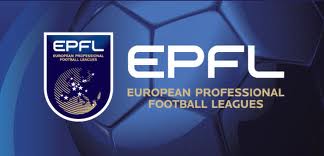By Matt Scott
September 10 – European leagues have responded to Sepp Blatter’s recommendation to shift the 2022 World Cup to the northern-hemisphere winter by demanding FIFA pull back from a “hasty decision” on the matter.
In an exclusive interview with Insideworldfootball yesterday [http://www.insideworldfootball.com/fifa/13216-exclusive-with-sepp-blatter-everyone-complains-about-winter-2022-but-what-about-discrimination], the FIFA president indicated he will “advise” for a new timetable to be adopted at his organisation’s executive committee meeting on October 3 and 4.
Yet the leagues say this advice runs counter to their interests and that the decision should not be subject to an “artificial deadline” nine years before the event takes place.
The European Professional Football Leagues, a collective body for Europe’s domestic club competitions, announced in a press release today: “The EPFL, representing the entities responsible for the organisation of national championships in Europe, is of the view that no hasty decision shall be made by the FIFA Executive Committee of October 3-4 considering … such an important decision cannot be rushed with artificial deadlines as the concerned FIFA World Cup will take place in 9 years.”
The release set out the EPFL credentials for its right to have a say in the matter of the scheduling of the World Cup. “The feasibility of any change to the calendar involves every aspect of football organisation across all countries, from the grass roots to the major national representative tournaments and the leagues,” it went on.
“Any suggestion of staging the World Cup at a time other than the traditional period is a crucial issue for the European Leagues considering the impact on the organisation of domestic championships throughout Europe, and of the international football calendar around the world.”
With player contracts running from June to June, the leagues warn that a close-season tournament held in the European winter months would affect the stability of football’s employment system.
They added there would also be implications for FIFA’s own competitions such as the World Club Cup, the Confederations Cup or individual events like the European Championships and the Africa Cup of Nations. This could, says the EPFL, extend beyond football to the winter Olympics.
“Prior to any decision, the side effects on the international calendar of a possible rescheduling should be assessed through an extensive fact-based analysis taking into account the potential clash with other major international events, for instance the winter Olympic Games,” it said.
“It is also needed from a professional football league’s perspective to assess the relevant commercial/media and legal consequences, including for instance the impact on the transfer system and players’ employment/status… [and] for instance when referring to [the] promotion and relegation system.
“The above highlights the complexity and seriousness of this matter and the numerous ramifications that such a decision might have on international, continental and national football.”
The EPFL demanded a widespread consultation process including a medical assessment of how players’ health and fans’ comfort would be impacted by hosting the Qatar 2022 tournament in the traditional summer window. Although it declared itself “a constructive force”, the EPFL’s carefully enumerated conditions felt like the preamble to some form of legal action against FIFA if Blatter’s advice is followed on October 3 and 4.
“Any change to the international calendar must be carefully assessed through a full and proper consultation and decision making process balancing all relevant interests, including all football stakeholders and notably the EPFL,” it added.
“The EPFL kindly requests FIFA and the members of its Executive Committee that prior to any decision [being] taken in respect of the international calendar, including as one issue the possible rescheduling of the FIFA World Cup 2022, a thorough assessment is carried out and an appropriate consultation process is promoted with all relevant football stakeholders, including the EPFL.”
It is not the first time the EPFL has corresponded with FIFA on the matter. Insideworldfootball revealed last month how the EPFL’s president, Frédéric Thiriez, had written a personal letter to Blatter, with UEFA’s president, Michel Platini, copied in, requesting his member leagues’ interests be considered as part of a “general consultation” [http://www.insideworldfootball.com/world-football/europe/13049-europe-s-leagues-flex-muscle-and-issue-warning-over-winter-2022-proposal].
It appears from Blatter’s comments here yesterday that Thiriez’s correspondence has gained little traction.
Contact the writer of this story at moc.l1745125073labto1745125073ofdlr1745125073owedi1745125073sni@t1745125073tocs.1745125073ttam1745125073

